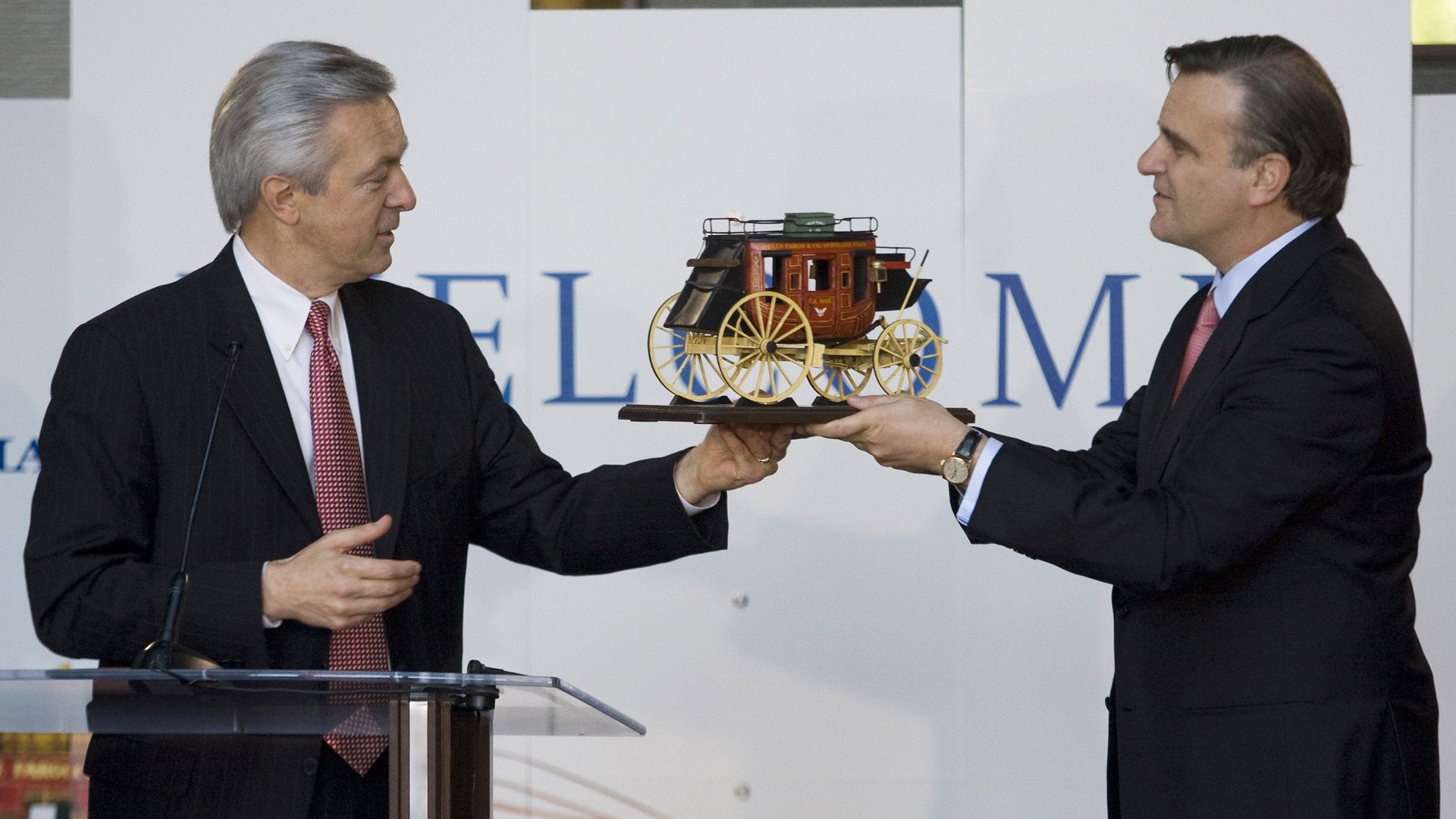The complete guide to corporate gifts for clients
For most people gift-giving peaks around the holidays, but in the corporate world, it happens at a clip all year long.


For most people gift-giving peaks around the holidays, but in the corporate world, it happens at a clip all year long.
US companies spend $22.7 billion annually on incentives and loyalty gift cards for staff and for clients. Add in corporate travel and merchandise, and businesses spend $77 billion (pdf) to encourage sales success or feel-good relationships.
But gifts also have the potential to create conflicts of interest, improper alliances, and even cross the bounds of what is legal. About 15-18% of workers say they have observed conflicts of interest at work, and 3-9% indicate they saw a colleague accept gifts or bribes, according to the National Business Ethics Survey (pdf).
Here’s our guide to corporate gifts (and how to keep your ethics intact along the way):
1. Know what’s forbidden
Most companies forbid cash gifts, which look too much like a bribe, while others don’t allow partners to pay for travel. Here are some policy guidelines from major corporations:
- Ford workers are not allowed to accept packaged alcohol or discounts on goods or services unless they are generally available to all employees.
- Verizon employees are not allowed to receive tips or gifts involving travel, unless they receive approval from the company.
- Coca Cola‘s staff is not allowed to make “facilitating payments” to government officials to expedite licenses.
- BP staff can accept gifts valued at less than $50, but more expensive ones must be approved by a manager and recorded in the company’s Gifts and Entertainment Register.
- Google permits staffers to accept ”inexpensive token non-cash gifts.”
- Merck employees are prohibited from giving gifts to customers, but may accept items of “nominal value” like a calendar.
In a UHY Advisors poll, one in eight senior financial executives said a gift from a vendor would influence them only if it was “sizable“—about the same ratio of executives who said that any gift could influence them. It’s unwise to give or accept gifts (pdf) at any point during a contract renewal, merger, or takeover.
2. Consider the culture—and the individual
Gift-givers should be mindful of cultural norms and the gift should be appropriate for the recipient—as in: no chocolate for a colleague who is diabetic. Think about whether the person you’re honoring celebrates Christmas or New Year’s on a different date.
“There’s homework to be done before a gift can be given to an international client. We can’t presume that everyone does things the way we do them,” said Sue Jacques, a consultant, speaker, and protocol officer based in Canada. Speak to someone from recipient’s country or contact someone in human resources at the company to inquire about their policies on giving and receiving gifts, she said.
Ideally, you should buy something that demonstrates that you’ve listened to the recipient and understand his interests. Jacques gives her coaching clients small gifts, such as a coffee gift card, a journal, or a subscription to a magazine. “When you reflect their interests, it shows that you pay attention to them,” she said. In some cases, a more general card of thanks or a handwritten note, may work better, Jacques said.
3. Share it widely
Some employers have adopted a one-for-all policy. Any plants or flowers that arrive are displayed in the lobby, and gifts of food are shared in a central location. Edible Arrangements chief operating officer Kamran Farid told Inc that a communal gift “creates a little more symmetry” and reduces concerns about favoritism or conflict of interests.
It helps when guidelines apply across the board.
“If while a junior member of staff has to decline a couple of tickets to a game from a valued supplier, senior managers are sitting in the box being wined and dined by local government officials, it does little for communicating why the policy is important,” said Foster Back at the Institute of Business Ethics (IBE). “At the IBE, we know of at least one chief executive, a football lover, who take the company’s zero-tolerance approach to gifts really seriously, and despite the numerous invitations a man in his position receives, he turns them down. That’s a powerful message to send.”
4. Give back instead
According to a recent survey, 54% of US companies are donating money or goods to charities—that’s up from 39% in 2011. The Society for Human Resource Management survey found even more—78% of employers—were participating in some charitable activities, such as a winter coat drive for the homeless.
But it’s not just about corporate social responsibility. Instead of a traditional gift, companies can make donations in their clients’ names and then send holiday cards announcing the gift. Jacques suggests that generosity can be personalized by funding a charity that your client already supports.
If your office receives a huge basket of treats, and it clearly exceeds the limits set by corporate policies, pay it forward. Establish relationships with nonprofits that will gladly take the largesse.
“If you really can’t send it back….deliver it to a nursing home or hospital where someone can enjoy and appreciate” the gift, said Jacques. “Be very very transparent to the giver. Say ‘I’m grateful for the gift, but I’m not allowed to accept it.’ “
Another approach: Gather up all the gifts and freebies and auction them off once a year, with proceeds going to charity.